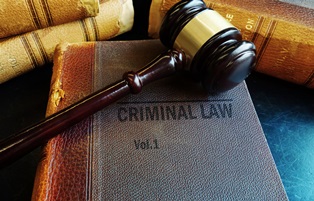There are legal terms that sound similar but have very different meanings. If you face potential criminal prosecution or if you’ve been arrested, you will likely hear many legal terms that significantly impact your case. You may be familiar with some of these phrases; however, if you’re facing potential criminal penalties, it’s important to understand the true legal meaning of these terms in the Commonwealth of Virginia. 
Reasonable Suspicion
A police officer may have reasonable suspicion that a crime is being committed if based on all of the facts and circumstances of the situation, a reasonable police officer would have the same suspicion. The police officer does not need physical evidence in order to have reasonable suspicion. Instead, the presumption of reasonable suspicion is made based on the officer’s training, the circumstances of the situation, and what other officers would do in similar circumstances.
If a police officer has reasonable suspicion, he may briefly stop the person involved, but an officer may not make an arrest based on reasonable suspicion alone. For example, if a driver is driving erratically, swerving between lanes, and failing to stop for traffic signals, a police officer may have reasonable suspicion that the driver is drunk. The officer may pull the driver over, but the officer may not arrest the driver unless there is further evidence of drunk driving to establish probable cause for the arrest. If after being pulled over a driver fails a sobriety test, that may provide probable cause for an officer to make a drunk driving arrest.
Probable Cause
Before the police can arrest someone or get a search warrant, they must have probable cause to make the arrest or to conduct the search.
The Fourth Amendment of the U.S Constitution references probable cause as a necessary component of a search or seizure of property and before a person is taken into police custody. Specifically, the Fourth Amendment reads:
The right of the people to be secure in their persons, houses, papers, and effects, against unreasonable searches and seizures, shall not be violated, and no Warrants shall issue, but upon probable cause, supported by Oath or affirmation, and particularly describing the place to be searched, and the persons or things to be seized.
Thus, probable cause is left to the courts. The courts have established that probable cause is a higher standard than reasonable suspicion. Probable cause means that the police officer not only has a suspicion that a crime has been or is being committed, but that the police officer also has actual knowledge that the crime has been or is being committed.
In other words, there must be evidence that supports a police officer’s suspicion that a crime has been committed before he can have a search warrant issued and/or make an arrest.
Words Matter in Your Criminal Defense
The legal terms used in your case are important. If a police officer acts without reasonable suspicion in a situation that requires it or without probable cause in a situation that requires it, this could be used as part of your legal defense.
Because you may face jail time, significant fines, and a permanent criminal record, you need experienced Virginia criminal defense lawyers to raise all the possible defenses in your case. Contact Kearney, Freeman, Fogarty & Joshi today to discuss your situation.
|
Related links: |

